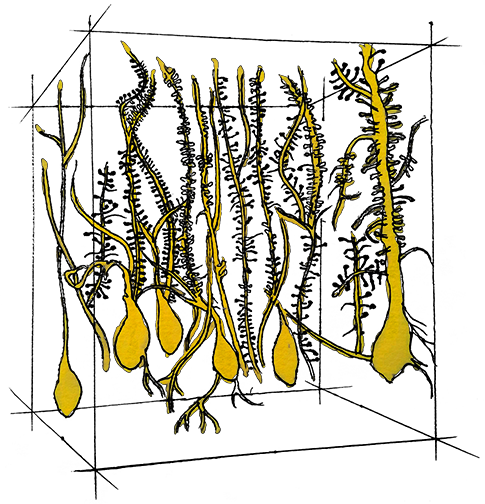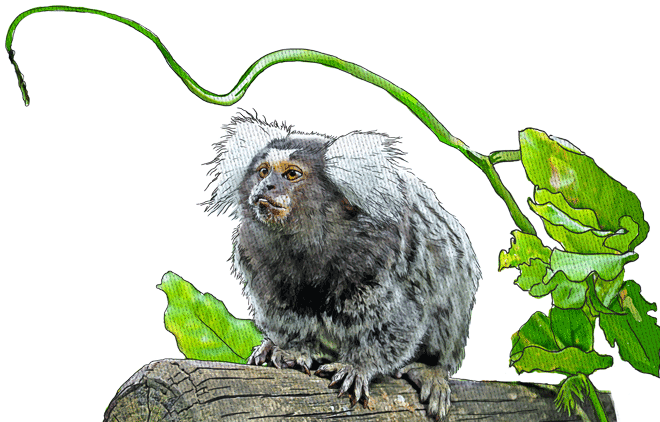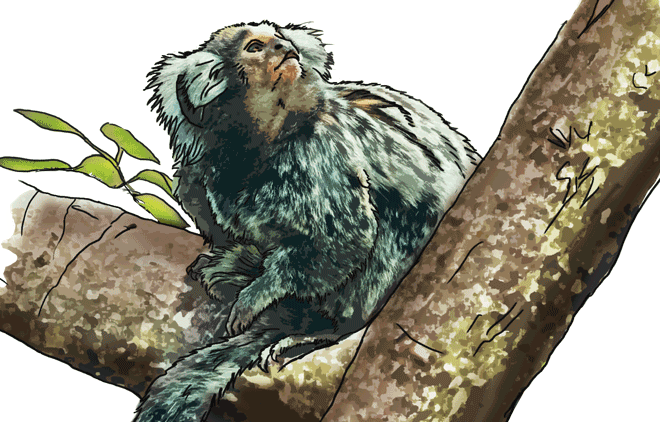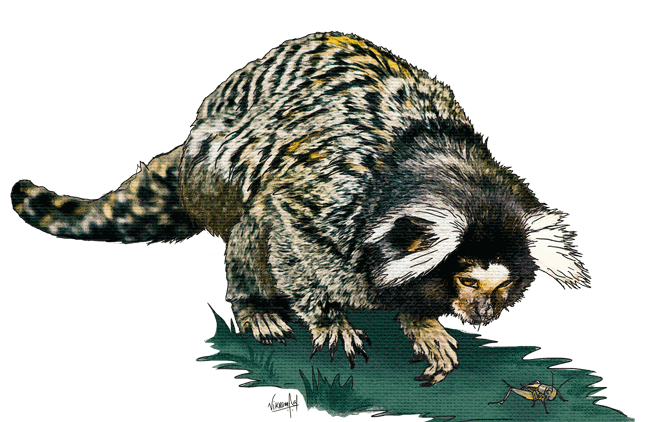Cortical Systems & Behavior Laboratory
University of California,
San Diego

PI: Cory Miller
Associate Professor
University of California,
San Diego
Overview
Research Mission
Each species evolved neural mechanisms that enable individuals to effectively navigate their respective social and ecological landscapes. These landscapes are inherently noisy, comprising features and events that vary along multiple dimensions. Rather than incapacitate neural processes, our brain is equipped with mechanisms to efficiently parse, encode and process meaningful information and use it for subsequent decisions. Our research philosophy is that significant insights into the neural mechanisms underlying our ability to navigate the complexities of the natural world come from experiments performed in these exact contexts. A core mission of our lab is to examine neocortical processes in the context of the noisy, cluttered acoustic and social landscapes. While we emphasize studies of natural behavior, we also complement this work with experiments employing conditioned behavioral paradigms to examine specific facets of the neural processes. Research in our lab ranges from studies of natural communication in wild populations to experiments on neural circuitry as part of a broader vision to elucidate the neurobiology of behavior in nonhuman primate neocortex.
Lab Projects
Project 1.
Social Communication
Communication is an inherently interactive process involving the active exchange of information between conspecifics. The aim of this line of research is to elucidate the co-evolution of brain and behavior in the vocal communication system of common marmosets. We combine field studies in Northeastern Brazil of the species in its natural habitat with detailed experimental behavioral and neurophysiological experiments in the laboratory. Neurophysiological studies are performed on freely-moving animals as they engage in their natural communication behaviors. This unique, broadly integrative approach provides a novel platform in which to examine the complex interplay between the social, ecological and neurobiological factors that contribute to primate vocal communication.

Project 2.
Navigating Social Space
Primates are most distinguished from other animals by the sophistication of our social networks and the dynamic nature of the models we develop to effectively navigate these landscapes. At the heart of this challenge is the representing both where individuals are in the environment relative to one’s own position and who they are in the social network. This line of research is currently focused on the role of medial temporal lobe structures for integrating these pivotal threads of information. Ongoing experiments in this line of work are aimed at explicating the neural basis of spatial encoding in the primate hippocampus and entorhinal cortex, as well as how these structures also represent pivotal social information about conspecifics.

Project 3.
Natural Vision
As active explorers of the world, vision is critical for representing the environment and provides necessary feedback for the various self-generated actions that unfold as we navigate (e.g. locomotion, reaching, etc). Despite this facet of our natural behavior, nearly everything known about primate vision is based on head-restrained subjects looking at static displays. This line of work seeks to explore natural, active vision by examining marmoset monkeys as they hunt insects. Marmosets are prolific hunters in the wild, offering the unique opportunity to leverage this prey-pursuit behavior to examine the perceptual and sensory-motor processes that occur in primate visual system during more the naturalistic conditions that drove the evolution of our brains.

Awards & Grants
Research in our lab
is funded by
Current research in the lab is funded by several grants from National Institute of Health and Air Force Office of Scientific Research


19RT0316
Outreach
In the News
Some of the media
and news coverage
of the Miller Lab.
Mention in media
- Spectrum News: “Questions for Cory Miller: Monkeying around with marmosets”
In Journal News
U.S. labs clamor for marmosets – Science
Special Issue (2017) Guest Editor
Miller, CT – Guest Editor (2017) Special Issue: Marmosets as a Model Primate for Neuroscience Research. Developmental Neurobiology. Issue Link
Our laboratory is affiliated with


Current Lab members
Principle investigator: Cory Miller
Post-Docs
Vikram Pal Singh, Ph.D
- Curriculum Vitae
- Research Interest: Decision-making in freely moving marmosets. My experiments involve Head-mounted eye tracking and hippocampal recording in freely moving animals.
Dori Grijseels, Ph.D
Jingwen Li, Ph.D
- Research Interest:
Arthur Lefevre, Ph.D
- Research Interest:
Graduate students
Brendan Prendergast
- Curriculum Vitae
- Research Interest: Cocktail Party Paradigm in marmosets
Tim Tyree
- Research Interest: computational efficiency of the visual system during active visual exploration in freely behaving marmosets.
- Curriculum Vitae
Research Staff
Lihn Voong
Anushka Vispute
- Curriculum Vitae
- Lab technician
Lab Alumni
Vladamir Jovanovic
Shanna Coop
Hristos Courellis
Madeleine Gagne
Maddie Heater
Victoria Ngo
Adam Fishbein
Matthew MacDougall
Jude Mitchell
- Assistant Professor, University of Rochester
- Personal website
Sam Nummela
Camille Toarmino
Jenny Wu
Positions available
The lab is currently accepting applications for graduate students. Interested individuals can apply to work in the lab through either the UCSD Psychology or Neurosciences Graduate Program. Please contact Cory Miller (corymiller@ucsd.edu) for additional questions.
The lab is currently accepting applications for post-doctoral fellows. Specifically, we are looking for qualified individuals interested in on working one of the following topics:
Neural basis of Vocal Communication
These experiments examine the role of the ventral cortical pathway for vocal signal recognition during natural marmoset vocal interactions.
Spatial Navigation
These experiments build on our recent identification of place cells in marmoset hippocampus during free-navigation to further explicate spatial encoding in the primate medial temporal lobe.
Please contact Cory Miller (corymiller@ucsd.edu) for additional questions.
collaboration
Got a query?
Contact us.
Cory Miller,
UC San Diego 9500
Gilman Dr. La Jolla, CA-92093
United States
email: corymiller@ucsd.edu
We’re a team of neuroscientists who are excited about animal behavior and would love to get inputs or hear from you!